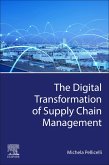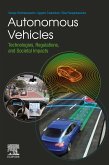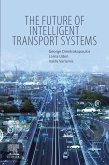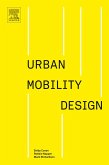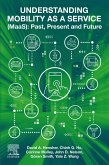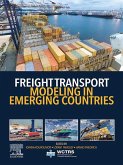Readers will find a variety of new tools for analyzing and building effective transport chains that addresses component technology, information, responsibility, and financing dimension, along with sections on key organizational, regulatory, infrastructure and technological barriers. The book concludes with a look into the future of the freight transport sector.
- Presents a step-by-step approach that introduces key topics for understanding efficient intermodal transportation
- Focuses on the concept of fitness between the modes of transport profiles
- Contains numerous, real-world case studies throughout
- Examines performance metrics
Dieser Download kann aus rechtlichen Gründen nur mit Rechnungsadresse in A, B, BG, CY, CZ, D, DK, EW, E, FIN, F, GR, HR, H, IRL, I, LT, L, LR, M, NL, PL, P, R, S, SLO, SK ausgeliefert werden.



